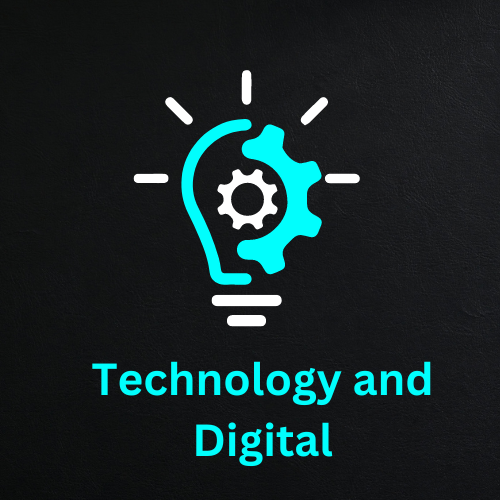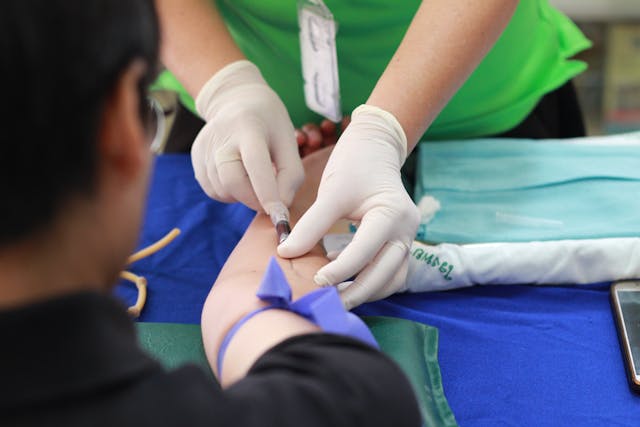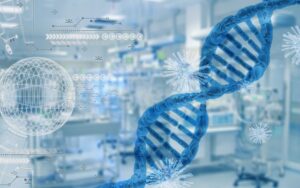From Lab to Life: Biotechnology’s Impact on Healthcare
Introduction
In the ever-changing landscape of healthcare, biotechnology stands as a beacon of hope and progress. It is propelling transformational advances that are revolutionizing the way we prevent, diagnose, and treat illnesses. From personalized medicine to groundbreaking medical breakthroughs, biotechnology is reshaping the healthcare environment, ushering in a new era of precision and efficacy.
Healthcare has always been a field where innovation is not just welcomed but necessary. In recent years, biotechnology has emerged as a critical player, driving breakthroughs that were once thought impossible. This essay explores how biotechnology is reshaping healthcare, diving into its role in personalized medicine, diagnostics, treatment methods, and overall patient care. Let’s journey through the world of biotechnology and its profound impact on our lives.
The Evolution of Biotechnology in Healthcare
Biotechnology, the use of biological systems or living organisms to develop products, has been around for centuries. From the fermentation of beer to the creation of vaccines, biotechnology has laid the foundation for many medical advancements. However, the last few decades have seen a dramatic acceleration in its development and application, especially in healthcare.
The integration of biotechnology into healthcare has been nothing short of revolutionary. The Human Genome Project, completed in 2003, was a pivotal moment that provided a comprehensive map of all the genes in the human genome. This project paved the way for genetic research, enabling scientists to identify genetic mutations responsible for various diseases. Today, biotechnological tools like CRISPR and next-generation sequencing allow for precise genetic modifications, offering hope for curing genetic disorders and enhancing human health in unprecedented ways.
Personalized Medicine: A New Frontier
Understanding Personalized Medicine
Personalized medicine, also known as precision medicine, tailors medical treatment to the individual characteristics of each patient. This approach considers genetic makeup, lifestyle, and environmental factors to design the most effective treatment strategies. Biotechnology is at the heart of this revolution, enabling healthcare providers to move away from the one-size-fits-all model.
Genomics and Personalized Treatment
The Human Genome Project’s completion marked a significant milestone in personalized medicine. It provided a detailed map of human genes, paving the way for genetic research. Today, biotechnological tools like CRISPR and next-generation sequencing allow scientists to identify genetic mutations responsible for various diseases, leading to targeted therapies. For instance, in oncology, genetic profiling of tumors helps in selecting the most effective treatment, reducing side effects, and improving outcomes.
Pharmacogenomics
Pharmacogenomics studies how genes affect a person’s response to drugs. This field is crucial in developing personalized medicine. Biotechnology companies are creating tests that predict how patients will respond to specific medications, ensuring that they receive the most effective drugs with the fewest side effects. This approach not only enhances patient care but also reduces healthcare costs by minimizing trial-and-error prescribing.
Revolutionizing Diagnostics
Early Detection and Diagnosis
Early detection of diseases significantly improves the chances of successful treatment. Biotechnology has introduced innovative diagnostic tools that can detect diseases at their earliest stages. For example, liquid biopsies, which analyze blood samples for cancer markers, are less invasive and can detect tumors long before they become symptomatic.
Molecular Diagnostics
Molecular diagnostics involve the analysis of DNA, RNA, and proteins to diagnose diseases. Techniques such as polymerase chain reaction (PCR) and enzyme-linked immunosorbent assay (ELISA) have become standard practices in laboratories worldwide. These technologies enable precise and rapid identification of pathogens, genetic disorders, and other health conditions, allowing for timely and accurate treatment.
Point-of-Care Testing
Biotechnology has also made significant strides in point-of-care testing (POCT), which allows for immediate diagnostic results at the patient’s bedside or in their home. POCT devices, such as glucose meters and rapid antigen tests, provide quick and reliable results, facilitating prompt medical decisions and improving patient outcomes.
Advancements in Treatment
Biopharmaceuticals
Biopharmaceuticals, also known as biologics, are medical drugs produced using biotechnology. These include vaccines, blood components, gene therapies, and recombinant proteins. Biologics have transformed the treatment of many diseases, offering targeted and effective therapies with fewer side effects compared to traditional drugs. Monoclonal antibodies, for example, are engineered to target specific antigens in cancer cells, leading to more precise and effective treatments.
Gene Therapy
Gene therapy is a groundbreaking biotechnological advancement that involves altering the genes within a patient’s cells to treat or prevent disease. This technique holds promise for treating genetic disorders, some of which were previously deemed incurable. For instance, gene therapy has shown success in treating conditions like spinal muscular atrophy and certain types of inherited blindness.
Stem Cell Therapy
Stem cell therapy uses undifferentiated cells that have the potential to develop into various cell types. This biotechnological approach offers hope for regenerating damaged tissues and organs. Stem cell treatments are being explored for a range of conditions, including spinal cord injuries, Parkinson’s disease, and heart disease, potentially revolutionizing the way these conditions are treated.
Improving Patient Care and Outcomes
Regenerative Medicine
Regenerative medicine is a branch of biotechnology that focuses on repairing or replacing damaged tissues and organs. This field encompasses a variety of approaches, including tissue engineering, cellular therapies, and biomaterials. Advances in regenerative medicine are paving the way for treatments that can restore function to damaged organs and improve the quality of life for patients with chronic conditions.
Artificial Intelligence and Machine Learning
Artificial intelligence (AI) and machine learning (ML) are increasingly being integrated into biotechnological applications. These technologies can analyze vast amounts of data to identify patterns and predict outcomes, aiding in diagnosis, treatment planning, and drug discovery. AI-powered tools are helping healthcare providers make more informed decisions, leading to better patient outcomes.
Wearable Technology
Wearable technology, such as smartwatches and fitness trackers, has become a vital component of modern healthcare. These devices continuously monitor health metrics like heart rate, activity levels, and sleep patterns, providing valuable data that can be used to manage chronic conditions and promote overall wellness. Biotechnology companies are developing advanced sensors and algorithms to enhance the accuracy and utility of wearable health devices.
Ethical and Regulatory Considerations
Ethical Challenges
The rapid advancements in biotechnology raise several ethical concerns. Issues such as genetic privacy, the potential for genetic discrimination, and the ethical implications of gene editing must be carefully considered. Ensuring that biotechnological innovations are used responsibly and ethically is crucial for gaining public trust and acceptance.
Regulatory Frameworks
Regulatory bodies, such as the Food and Drug Administration (FDA) in the United States, play a vital role in overseeing the development and approval of biotechnological products. These agencies ensure that new treatments and diagnostic tools are safe, effective, and accessible to the public. Establishing clear regulatory frameworks is essential for fostering innovation while protecting public health.
The Future of Biotechnology in Healthcare
Emerging Technologies
The future of biotechnology in healthcare looks promising, with several emerging technologies on the horizon. Innovations such as CRISPR-based gene editing, 3D bioprinting, and advanced biomaterials hold the potential to revolutionize medical treatments and improve patient outcomes further. As research and development continue, we can expect to see even more groundbreaking biotechnological applications.
Global Health Impact
Biotechnology has the potential to address global health challenges, particularly in developing countries. By developing affordable and accessible diagnostic tools, vaccines, and treatments, biotechnology can help combat infectious diseases, reduce healthcare disparities, and improve health outcomes worldwide.
Conclusion
Biotechnology is undeniably transforming healthcare, bringing us closer to a future where precision, efficacy, and personalized care are the norm. From revolutionizing diagnostics to advancing treatments and improving patient outcomes, the impact of biotechnology is profound and far-reaching. As we continue to explore the possibilities, it is essential to navigate the ethical and regulatory challenges to ensure that these advancements benefit all of humanity. The journey from lab to life is just beginning, and the future of healthcare looks brighter than ever.
FAQs
FAQ 1: What is biotechnology?
Biotechnology is the use of biological systems or living organisms to develop products and technologies that improve human health and other applications. It encompasses a wide range of practices, including genetic engineering, molecular biology, and biopharmaceutical development.
FAQ 2: How does biotechnology impact personalized medicine?
Biotechnology impacts personalized medicine by enabling the development of treatments tailored to an individual’s genetic makeup, lifestyle, and environment. Tools like genetic sequencing and pharmacogenomics allow for more precise and effective therapies, reducing side effects and improving patient outcomes.
FAQ 3: What are some examples of biopharmaceuticals?
Biopharmaceuticals include vaccines, blood components, gene therapies, and recombinant proteins. Examples are monoclonal antibodies used in cancer treatment, insulin for diabetes management, and mRNA vaccines for infectious diseases like COVID-19.
FAQ 4: How is gene therapy used in healthcare?
Gene therapy involves altering genes within a patient’s cells to treat or prevent disease. It is used to correct genetic disorders, target cancer cells, and potentially cure inherited diseases. Successful applications include treatments for spinal muscular atrophy and certain types of inherited blindness.
FAQ 5: What are the ethical considerations in biotechnology?
Ethical considerations in biotechnology include genetic privacy, the potential for genetic discrimination, the implications of gene editing, and ensuring equitable access to biotechnological advancements. Addressing these issues is crucial for maintaining public trust and ethical integrity in the field.




